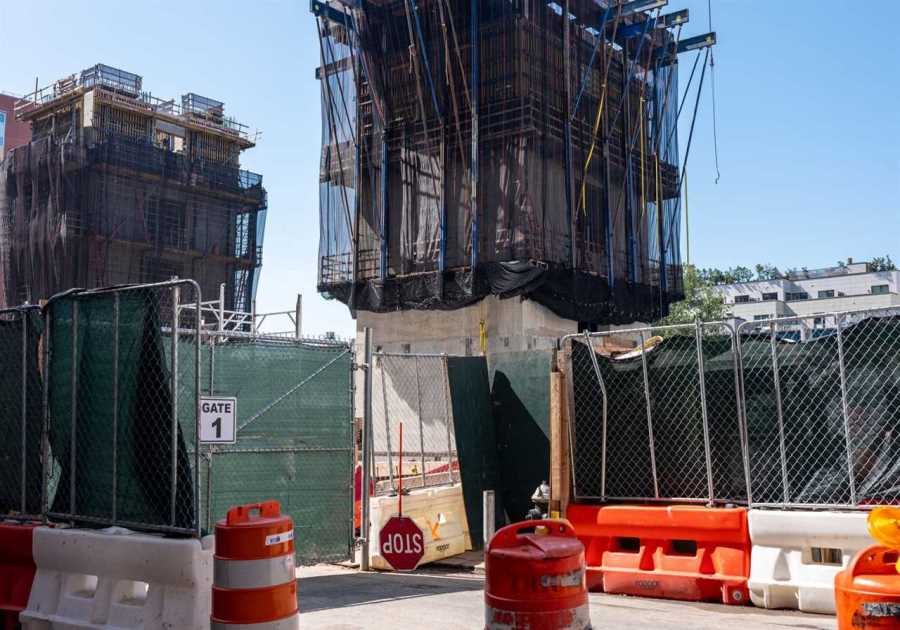Scott Mlyn/CNBC/NBCU Photo Bank/NBCUniversal via Getty Images
- The Fed shouldn't get credit for tackling the inflation threat, Jeremy Siegel says.
- The "Wizard of Wharton" blames the Fed for the US money supply soaring and prices surging.
- The Fed has caused a "permanent loss of purchasing power" for workers and savers, Siegel says.
The Federal Reserve has overseen a sharp drop in inflation, without unemployment spiking or the US economy slumping into recession. However, Fed Chair Jerome Powell and his colleagues deserve little praise as they caused the headache in the first place, Jeremy Siegel says.
"We should not give the Fed credit for fixing a problem they created," the retired finance professor wrote in his WisdomTree commentary this week.
"It is comparable to the Fed recklessly driving on the streets, hitting a pedestrian and then rushing him to the hospital so he did not die," Siegel continued.
"But there are still massive injuries; the American public suffered through the worst inflation in 40 years — something that did not have to occur had the Fed curtailed its money growth much earlier," he added.
Inflation soared as high as 9.1% last summer, after the US government spent trillions of dollars to soften the impact of the pandemic, and the Russia-Ukraine war and virus-related shutdowns disrupted global trade and caused delays and shortages around the world.
The Fed has responded by hiking interest rates from nearly zero to north of 5% over the last 18 months. The pace of price growth has slowed to below 4% in recent months, but that's still nearly double the Fed's target rate of 2% a year.
Siegel — whose nickname is the "Wizard of Wharton" — has attributed the inflation surge to a historic increase in the US money supply, and blamed the nation's central bank for it.
"The Fed produced an explosion of the money supply such as has not been witnessed in the last 150 years," he wrote in a recent Barron's column. Siegel noted the money supply swelled by almost 18% between March and July 2020, and 41% in the two years ending March last year, after growing at an average yearly rate of 5.5% for over three decades.
While the central bank has slowed the pace of money-supply growth, Siegel warned it was lucky to not cause a recession in the process. He also underscored the unnecessary pain that the Fed caused by not only buying bonds to stimulate the economy, but also funding the government's spending spree.
"Inflation is a cruel, non-legislated tax on those with fixed incomes and savings in bonds and bank deposits," Siegel said. "The damage has been done, as workers and savers have experienced a permanent loss of purchasing power."
Indeed, American consumers have faced sharp increases in their food, fuel, and shelter costs since the pandemic struck. The Fed's rate hikes have compounded their pain by increasing their car-loan, credit-card, and mortgage payments.
Higher borrowing costs are also threatening to pull down the prices of their stocks, homes, and other assets, wreak havoc on major employers such as regional banks and commercial real estate developers, and cause unemployment to jump and a recession to take hold.
"Powell and his Fed deserve little praise for fixing a problem they caused," Siegel said in his WisdomTree column.
Read More
By: [email protected] (Theron Mohamed)
Title: Don't thank the Fed for tackling inflation — it caused the problem, Wharton professor Jeremy Siegel says
Sourced From: www.businessinsider.com/jeremy-siegel-wharton-money-supply-federal-reserve-inflation-prices-economy-2023-10
Published Date: Tue, 03 Oct 2023 16:04:37 +0000
Did you miss our previous article...
https://trendinginbusiness.business/politcal/the-best-garmin-watch-to-buy-for-runners-cyclists-and-outdoor-athletes
.png)





